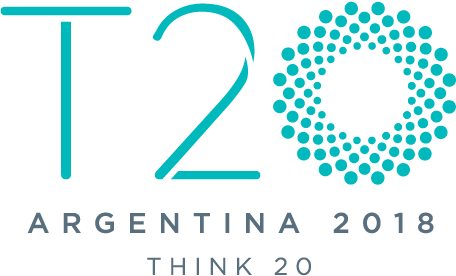Written by Patricio Carmody, member of the Argentine Council for International Relations (CARI) and the Center for the Implementation of Public Policies Promoting Equity and Growth (CIPPEC).
The visibility of the G20 has increased substantially on an international level following the recent and successful meeting between Treasury ministers and presidents of central banks. This visibility will reach its peak during the meeting between leaders in November, where the chiefs of state and of the government will dominate the stage as well as the content of the G20.
Until the Congress of Vienna (1814-1815), which had the task of creating a new international order after Napoleon’s defeat, the great and decisive diplomatic meetings were generally carried out by the chief of State or government. On a European level, international figures such as Richelieu and Napoleon, Prussian kings, Austrian kings and Russian Tsars were usually in charge of negotiations.
At the Congress of Vienna, the “leader diplomacy” began to leave space for a “statesman diplomacy”. This is pointed out in the Brazilian diplomat Sergio Danese’s book, Presidential Diplomacy, where he calls participating chancellors statesmen. Three prestigious chancellors, the Austrian Metternich, the French Talleyrand and the British Castlereagh, took control of the negotiations, relegating the sovereign rulers to a decorative function.
However, this “leader diplomacy” would strongly return during the Second World War, in the meetings of the allies Roosevelt, Stalin and Churchill in Tehran and Yalta. A valuable characteristic of these meetings was the possibility that these chief of State and of government would spend a lot of time together. Stalin said: “I would like to toast to this alliance, so that it doesn’t lose its intimate qualities and free expression of points of view. I do not know of in the history of diplomacy an alliance with these characteristics.” These three leaders worked with this valued dynamic to determine the division of Germany and of Europe, and to give form to the postwar world order.
The “leaders diplomacy” returns to have a decisive role in the G20 process this year in Argentina. These leaders will not come together in Buenos Aires to plan out country divisions or spheres of influence, but to shape the world of the future.
This meeting of leaders is extremely valuable in terms of the symbolic and the concrete. There is no other forum where leaders of the established powers, such as Trump, Merkel, Macron, Abe and Trudeau, and of emerging powers, such as Xi Jinping, Putin and Modi, and from the near abroad, Temer, have the possibility to meet face-to-face and along with Macri. There isn’t a better forum to represent the diversity of relations that Argentina is looking to establish either. In turn, this cooperation space has turned into the main forum for consensus-building for the governance of the global system.
Although the representatives receive the support of their respective bureaucracies, it is the leaders who will be the decision makers at the G20. The dynamic of the successive meetings during the year give prominence to the Argentine Sherpa Pedro Villagra Delgado, the chancellor Faurie, the ministers of Treasury and of Finance and the president of the Central Bank. However, it will be President Macri who will have the main role in the meetings with his colleagues. Presidential intuition and awareness will prevail there, leaving their respective second-in-commands “outside”. It will be valuable for the presidential meetings, formal and informal, to last for the right amount of time.
The G20 will be the stage for tension between leaders, as well as tensions between leaders and their bureaucracies. This is where interesting differences will manifest themselves, since, as Kissinger said “the spirit of public policies and that of bureaucracies are diametrically opposed. The essence of public policies is its contingency, the essence of bureaucracies is safety”. This means that while public policies are focused on what is happening, or what could happen, bureaucracies are focused on avoiding disasters and collapse.
President Macri has an enormous task in leading discussions and in the symbolic handling of the summit. There he could benefit from emphasizing symbolically his preference for a strategy of “diverse horizons”, but also Argentina’s natural inclination to show itself close to leaders that share its international vision, such as Macron, Merkel, Abe and Trudeau.
This article was first published on the 27 of April 2018 in La Nación.
